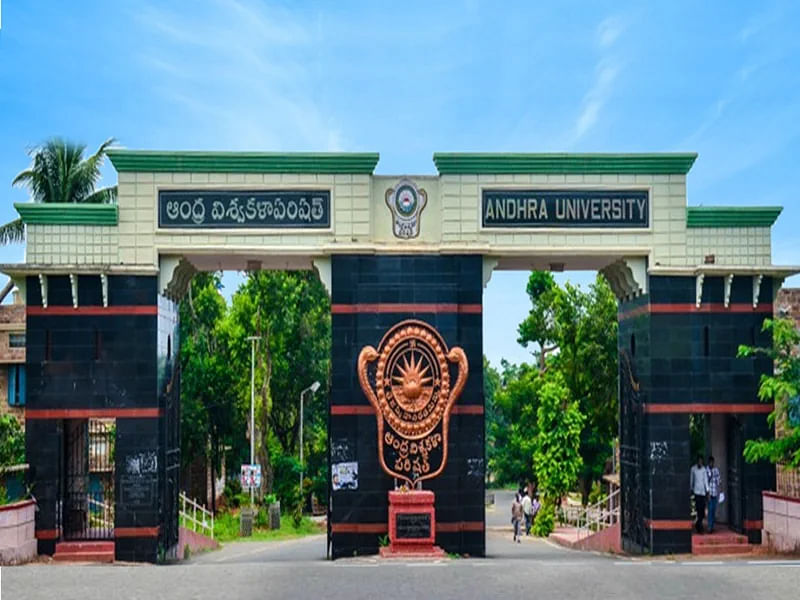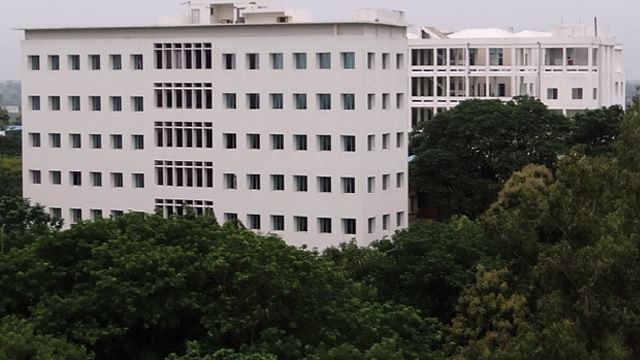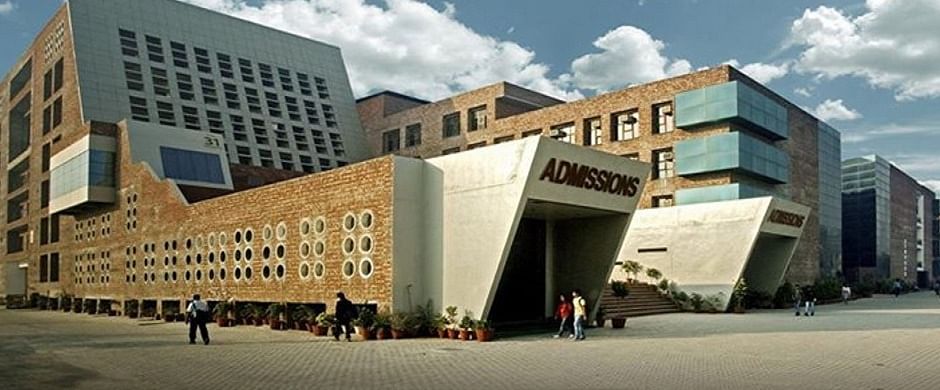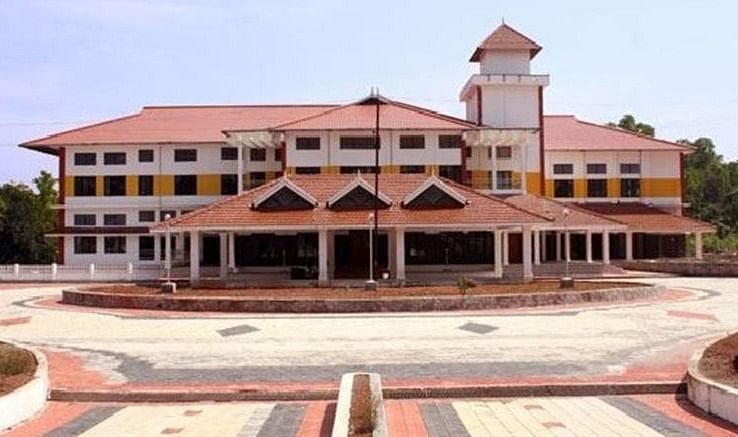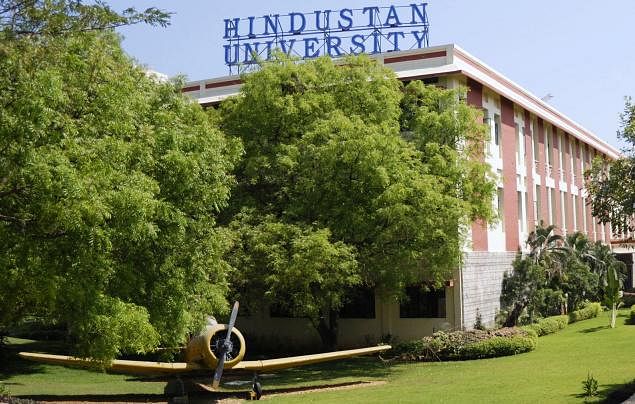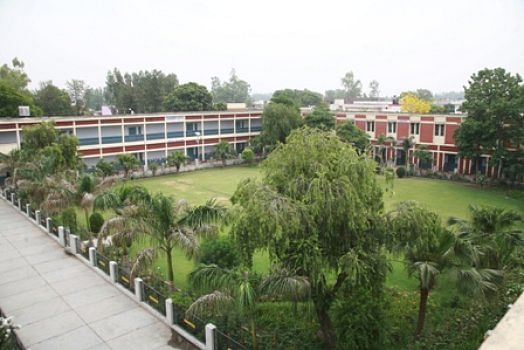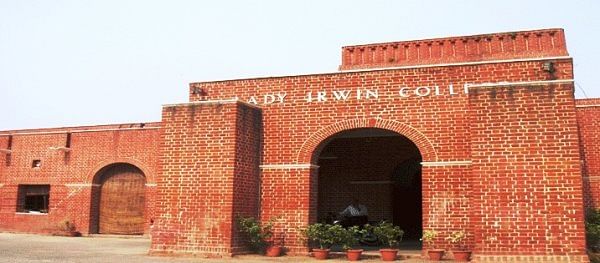B.Sc Food Technology: Course Details, Eligibility, Fees, Admission

B.Sc Food Technology is a three-year undergraduate course that deals with the production and preservation of food while maintaining its quality using various advancements in technology. Food Technology subjects teach the students the principles of food chemistry, microbiology, and various commercial practices of quality control. The job opportunities in this field help the aspirants gain experience with the different machines and equipment used in the food industry. These machines include pulverizers, extruders, and processing plants.
Table of Contents
- About B.Sc In Food Technology Course
- Eligibility Criteria For B.Sc Food Technology
- Admission Process For B.Sc Food Technology
- Popular Entrance Exams for B.Sc Food Technology
- Top B.Sc Food Technology Colleges In India
- B.Sc Food Technology Course Fees
- Syllabus and Subjects for B.Sc Food Technology
- Why Choose B.Sc Food Technology?
- What is B.Sc Food Technology All About?
- What Does An Food Technology Graduate Do?
- Preparation Tips For B.Sc Food Technology
- B.Sc Food Technology Scope For Higher Education
- B.Sc Food Technology Salary In India
- Career Options After B.Sc In Food Technology
- Skills To Excel
B.Sc Food Technology Course Details
| Degree | Bachelors |
| Full Form | Bachelor of Science in Food Technology |
| Duration | 3 Years |
| Age | Minimum Age is 17 years |
| Subjects Required | 10+2 from a recognized educational Board |
| Minimum Percentage | 50% |
| Average Fees | ₹20K - 50K PA |
| Similar Options of Study | B.Sc Food Science, etc |
| Average Salary | INR 3.8 LPA [Source: Glassdoor] |
| Top Recruiters | Food Analyst,Food Technologist, Research And Development Officer,Lab Incharge. |
About B.Sc In Food Technology Course
BSc Food Technology course includes subjects like food processing, emerging technologies, and food additives. They teach the aspirants everything there is to know about food technology at an undergraduate level. There is a wide job scope in areas like nutritional therapist, junior quality analyst, lab technician, etc., where graduates can gain a lot of knowledge.
Also, Check: Steps to Become a Health Inspector
Eligibility Criteria For B.Sc Food Technology
B.Sc Food Technology eligibility criteria require the aspirants to have a minimum of 50% marks in their class 12 examination from any recognized board. The aspirants should have physics, chemistry, maths, biology/home science as their core subjects. The minimum age criteria required the applicant to be at least 17 years old at admission.
Admission Process For B.Sc Food Technology
B.Sc Food Technology admission is done based on the relevant entrance examination conducted by the institutes or directly based on class 10+2 percentage. All applicants must fulfill the eligibility for B.Sc Food Technology. The course falls under the umbrella of B.Sc and henceforth has a similar admission process.
How To Apply?
Aspirants have to visit the university's official website and fill the relevant application form and upload their documents such as identity proof, mark sheet, and address proof. An application fee is to be paid online on submission. If the application form is not available online, the applicant must visit the college and fill the application form offline.
Selection Process
Applicants are shortlisted based on their performance in the entrance exam or their class 10+2 score, depending upon the university. Colleges might conduct a personal interview and a group discussion round to complete the admission process.
Read More on B.Sc Admission
Popular Entrance Exams for B.Sc Food Technology
Most universities take in students based on their class 10+2 percentage. A few institutes, however, take admissions based on an entrance examination. Here are some B.Sc Food Technology entrance exams:
- SET
- IMU CET
A Quick Glance At The B.Sc Food Technology Entrance Exams
Students can easily ace the entrance exams with a little preparation along with their class 10+2. A little understanding of the paper pattern and syllabus is required, which is mentioned below:
- The exam is objective-based, and students have to complete the MCQs within 3 hours.
- Students are tested on their knowledge of Physics, Chemistry, Biology, and English.
- The students need to practice the questions and prepare as per the pattern and syllabus of the examination.
Top B.Sc Food Technology Colleges In India
Here's a list of some of the best B.Sc Food Technology colleges in India:
| S.No | Top Colleges |
|---|---|
| 1 | Andhra Loyola College Vijayawada |
| 2 | Baba Farid College Bathinda |
| 3 | Rishihood University, Sonipat |
| 4 | Adikavi Nannaya University Rajahmundry |
| 5 | Dr. Harivansh Mahavidyalaya Unnao |
| 6 | Dr. Punjabrao Vidyapeeth Akola |
| 7 | Govind Ballabh Pant University Pantnagar |
| 8 | Hindustan University Chennai |
| 9 | IFTM University Moradabad |
| 10 | ITM University Gwalior |
B.Sc Food Technology Course Fees
B.Sc Technology course fees vary depending on the college and the category that the aspirant belongs to. Students belonging to economically weaker sections have their tuition fees waived off. Generally, B.Sc Food Technology fees is around INR 20K-50K Per Annum.
| College Name | Fees |
|---|---|
| Andhra Loyola College, Vijayawada | INR 40K |
| Baba Farid College, Bathinda | INR 53K |
| Andhra College, Vijayawada | INR 21K |
| Adikavi Nannaya University, Rajahmundry | INR 35K |
| Dr. Harivansh Mahavidyalaya, Unnao | INR 12.5K |
Syllabus and Subjects for B.Sc Food Technology
B.Sc Food Technology subjects are designed to teach the aspirants the basics of food production, processing, and maintenance. Students learn all the important concepts and topics required to become a professional in this field. Here are some of the core subjects of Food Technology:
- Principles of Food Science
- Foundation of Food and Nutrition
- Food Engineering
- Food Microbiology
- The technology of Meat, Eggs, and Poultry
Read More about B.Sc Food Technology Syllabus and Subjects
Why Choose B.Sc Food Technology?
The industry of food technology has made tremendous progress in the last few decades. Manufacturing companies spend millions in research and development, and there are many job opportunities in this field. Aspirants who pursue their PhD in Food Technology and research and development have a high cap salary.
What is B.Sc Food Technology All About?
BSc in Food Technology is a three-year undergraduate course that teaches the aspirants the maintenance and processing of food using various technologies. The aspirants get to learn everything about the advancements made in the food industry over the past few decades, along with the latest methods adopted by the top manufacturing food companies.With increasing dependence on packaged foods, food technologists have to develop different innovations to improve the quality and shelf life of foods. Here are some of the things that a food technologist does:
- Process Engineering
- Quality Assurance
- Set Packaging Standards
- Organic Chemistry
- Managing Blending Procedures
What Does An Food Technology Graduate Do?
Food technologists have a great demand, with many local manufacturing companies being set up regularly. Here are some of the tasks that a food technologist does:
Test The Safety and Quality Of Food: Food technologists are responsible for monitoring and checking if the food being processed is edible and safe for the general public.
Provide Accurate Food Labelling: All the ingredients that go into preparing food are labeled accurately to mislead the consumers. Food technologists are responsible for ensuring this procedure.
Related Careers:
| Food Inspector | Food Scientist |
| Food Safety Officer | Food Critic |
Reasons Why Food Technology Can Fetch You A Rewarding Career
Food technology is not a new industry, but it has made exponential progress in the last decade. Top companies have a lot of demand for skilled food technologists to improve their line of products. Here are a few reasons why food technology can give you a rewarding career:
Boom Of Healthy Lifestyle: More and more people are concerned about their health and lifestyle. Companies need to make products that are not just profitable but also healthy for the consumers. Food technologists have a great career growth working in this industry because of this reason.
High Paying Jobs: Aspirants who have completed their PhD in food technology have an amazing salary working in research and development.
Read More about B.Sc Food Technology Jobs
Preparation Tips For B.Sc Food Technology
B.Sc Food Technology students need to stay disciplined and be well versed with their syllabus. It is also important to read research papers to be familiar with the advancements made in the field. Here are some tips:
Create A Routine: It is important to be familiar with the syllabus and break it down into smaller sections to study every day. With this technique, there will be no backlogs at the end of the semester.
Reading Research Papers: To stay a step ahead of the designed curriculum, make a habit of constantly learning about the latest innovations and developments made in the field through research papers and journals.
B.Sc Food Technology Scope For Higher Education
Graduates who are truly passionate about this field can pursue M.Sc in Food Technology and PhD in Food Technology to boost their career. Not only will it help them get a better salary but also they'll acquire a lot of practical knowledge during these courses.
M.Sc Food Technology:
It is a two-year postgraduate that an aspirant can follow on completion of their undergraduate degree. This course dives deeper into the concepts of food processing and preservation.
PhD Food Technology:
It is a research-based course where the aspirants have to choose a major topic in food science and technology and turn in their thesis to gain a doctorate. While a master's program lasts for two years, a PhD program can take 3 to 4 years.
B.Sc Food Technology Salary In India
According to Glassdoor, the average B.Sc Food Technology fresher salary in India is INR 3-5 LPA. With more qualifications in this field, it is possible to get a high salary, and aspirants can expect great career growth. Experienced candidates also get high position management roles in this field.
Read More about B.Sc Food Technology Salary
Career Options After B.Sc In Food Technology
B.Sc in Food Technology in India gives graduates many opportunities to work in different areas within the food industry. Given below is the list of most popular career options after B.Sc Food Technology:
- Research Scientist
- Quality Manager
- Purchasing Manager
- Nutrition Consultant
- Food Blogger
Skills To Excel
Food Technology graduates need a lot of other skills besides their professional skills to excel in this career. Here are some of the most important skills:
- Communication Skills
- Critical Thinking
- Problem Solving
- Observational Skills
- Data Analysis
| Top Trending B.Sc Courses | |
| BSc Nursing | B.Sc Psychology |
| BSc Agriculture | B.Sc Forensic Science |
| BSc Computer Science | B.Sc IT |
| BSc Biotechnology | B.Sc Microbiology |
Check other important B.Sc Courses
Top B.Sc Food Technology Colleges
Top Science Entrance Exams
B.Sc Food Technology Fee Structure
FAQs on B.Sc Food Technology
Q: 1. Is B.Sc Food Technology and B.Tech Food Technology the same?
Q: 2. Does B.Sc Food Technology have a scope in India?


